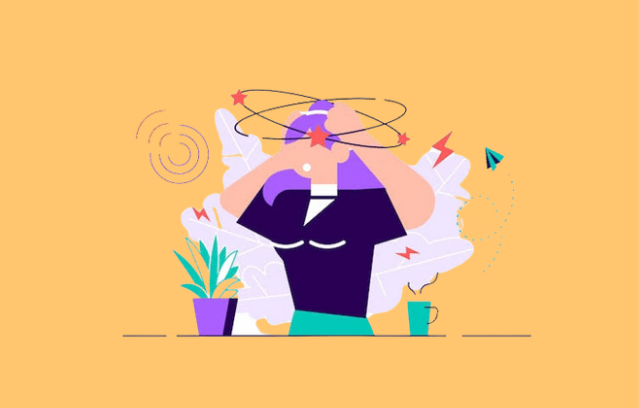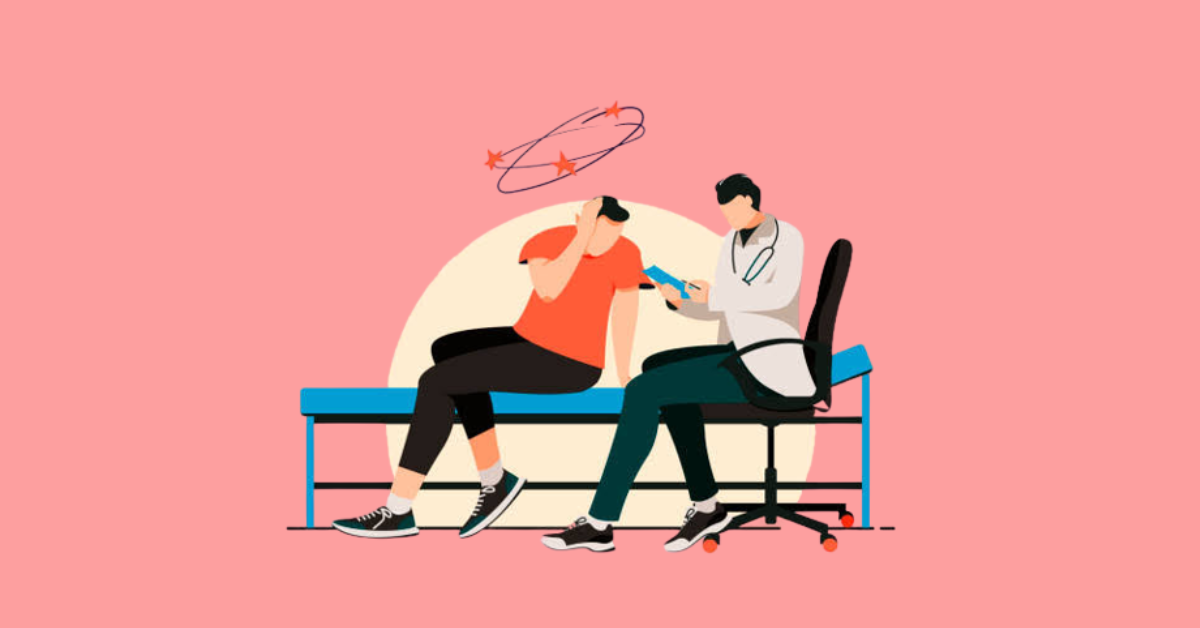
Vertigo is a condition in which a person is not able to maintain a proper balance. It is caused due to inner ear dysfunction. The inner ear is responsible for maintaining balance. The ear has a special system called the vestibular system which helps to maintain balance. Vertigo can be a cause of any other disorder or dysfunction. People often get confused between motion sickness and vertigo. Vertigo can be extremely disturbing and can hamper your life activities.
What is Vertigo?
Vertigo is the problem which leads us to spinning, a sense of unsteadiness, and a feeling of whirling. The person feels very uncomfortable, totally unsteady and can’t keep himself straight. This puts the person in a very different state. This can be due to an issue in the middle ear canal or the inner ear or a symptom for underlying condition. To understand the condition better let’s take a dive into the function of the inner ear. This will help you to understand vertigo treatment better.
Inner Ear
Let’s understand the function in a very simple way. Our ears have two major functions, first being hearing and second balance. When we talk about vertigo, the area involved is the vestibular system which is responsible for detection and interpretation of head movements. This is directly sent to the brain and then final interpretation happens. Vertigo can be classified on the basis of the affected area, that is the central system or the peripheral vestibular system.
Talking about peripheral vestibular system, there is a further division into three major types of vertigo:
- Benign Paroxysmal Positional Vertigo
- Meniere’s Disease
- Vestibular Neuronitis
Benign Paroxysmal positional vertigo is the most common type of vertigo which is caused by calcium carbonate, ageing, head trauma, viral infection etc. The symptom is mostly positional. It lasts for a minute and can be triggered by movement. This can recur after a few weeks. So the person should take a proper vertigo treatment.
Meniere’s disease is caused by excessive endolymph and can lead to hearing loss. This condition requires vertigo treatment at the right time to prevent hearing loss and tinnitus. They last for several hours and thus can get severe. In case you find someone having severe symptoms, online consultation can help to prevent further damage. Acute vestibular Neuritis is inflammation of the vestibular nerve caused by viral infection. The patient might come with a history of acute onset of vertigo that lasts for several weeks.
It is necessary to distinguish between the different types of disorders and choose a proper vertigo treatment.
Other causes of vertigo includes
-trauma to the vestibular nerve
-hyperviscosity syndromes
-otosclerosis
-vestibular nerve tumours
-stroke
-vestibular migraine
Vertigo Symptoms
Vertigo is a descriptive term for a sensation that there’s movement between the patient and their environment; they feel everything is moving. Horizontal spinning sensation similar to the sensation you’d get when spinning a swing and abruptly stopping the environment.
It is associated with nausea, vomiting, generally feeling unwell and sweating. Here is a list of symptoms that can occur in case you have vertigo :
The first sign of vertigo include
-lack of balance
-lightheadedness
-a sense of motion sickness
-ringing in the ear
-headache
-uncontrolled movement of eye
Symptoms associated with severe vertigo
Generally vertigo lasts for a few minutes but if it lasts for a long duration of time then you should look for immediate vertigo treatment.
These symptoms include :
-chest pain
-numbness
-shortness of breath
Reminder, vertigo can be a symptom of something more serious. If vertigo is recurrent, unexplained and prolonged.
This can be dangerous if not given a proper and immediate vertigo treatment. So consult an ENT specialist for the same.
Vertigo treatment
Vertigo treatment depends on the cause and symptoms. It can be acute or mild or severe. The duration, frequency and recurrence can help the Otolaryngologist to understand your vertigo better.
-Physical therapy
-Drugs that treat the vertigo symptoms
-Surgery in few cases
Consult your ENT doctor to choose the best possible vertigo treatment.
The don’t and do’s
Vertigo is a miserable disease. The fact that it can occur without an alarm, vertigo treatment, prevention and care becomes a task for medical professionals.
Vertigo treatment has to be continued to avoid the severity and decrease the frequency of the same. Ent doctors can identify the true cause of the disease, to check whether it indicates some other disease or not.
Here is list of do’s and don’t during vertigo:
-Consult your otolaryngologist on an immediate and regular basis if you have vertigo symptoms. Talk about your medication even though it’s herbal for a proper vertigo treatment.
-Don’t ignore vertigo symptoms and dont use very high doses of aspirin.
-Be aware of your body, do not get out of the bed immediately, as soon as you wake up that would lead to imbalance . Take long breaths, turn to the side with the support of your hand and then move out of your bed.
-Don’t stand for too long, take 15 mins break after standing for 45 mins. Do sit down as soon as you feel dizzy.
-30 mins walk can improve vertigo by improving the balance.
-If you are working out make sure to eat 2-3 hours before the workout.
-Vertigo has very clear warning signs and it’s not a good habit to ignore them. Vertigo treatment is still an area of research because its causes are not known till yet.
-Don’t overexert yourself. Consult your ENT doctor for the best routine.
Vertigo vs Motion Sickness
Vertigo is a type of dizziness, the person feels as if the external world is revolving around him or he is revolving in space. Motion sickness is a feeling when you are moving but your senses respond in a different way. Suppose you are in a car, your ear can sense the motion but your eyes cannot see. So that leads to motion sickness. Vertigo can occur even while you are lying in bed. Although both have similar symptoms and cause that is inner ear disturbance and mismatch of sensory signals but the vertigo treatment varies from motion sicknesses
Home remedies for Vertigo
Vertigo treatment is essential to reduce the symptoms and signs. Home remedies can help you reduce the symptoms and recurrence of the same. Some of these are advised by the ENT specialist:
-Introduce ginger in your lifestyle. This might help you to reduce the frequency.
-Almonds and lemon can help you to reduce the severity of vertigo.
-Proper hydration is very important. It is a proven gig by the ENT specialist to improve the condition. According to experts you should consume half of your weight, at least try to be near to the goal! Slowly increase water intake, cup by cup!
-Exercises like movement of the head along different angles can help you reduce signs and symptoms of vertigo.
-Gaze stabilisation exercises can help you reduce the frequency.
-Massaging the deep structures of your neck can relax and improve your condition.
All the mentioned above cannot substitute the vertigo treatment provided by an ENT specialist. You can even make an online consultation before making a visit.
Take away
Vertigo is a common disease. Vertigo treatment and causes is still a mystery and why women are more prone to this. People often get confused with motion sickness and vertigo. Vertigo treatment by an ENT specialist can help you live a better life. Online consultation can be helpful during acute attacks. The don’t and do’s should be kept in mind. Remember hydration is key! Exercises and a good lifestyle can solve major problems.
